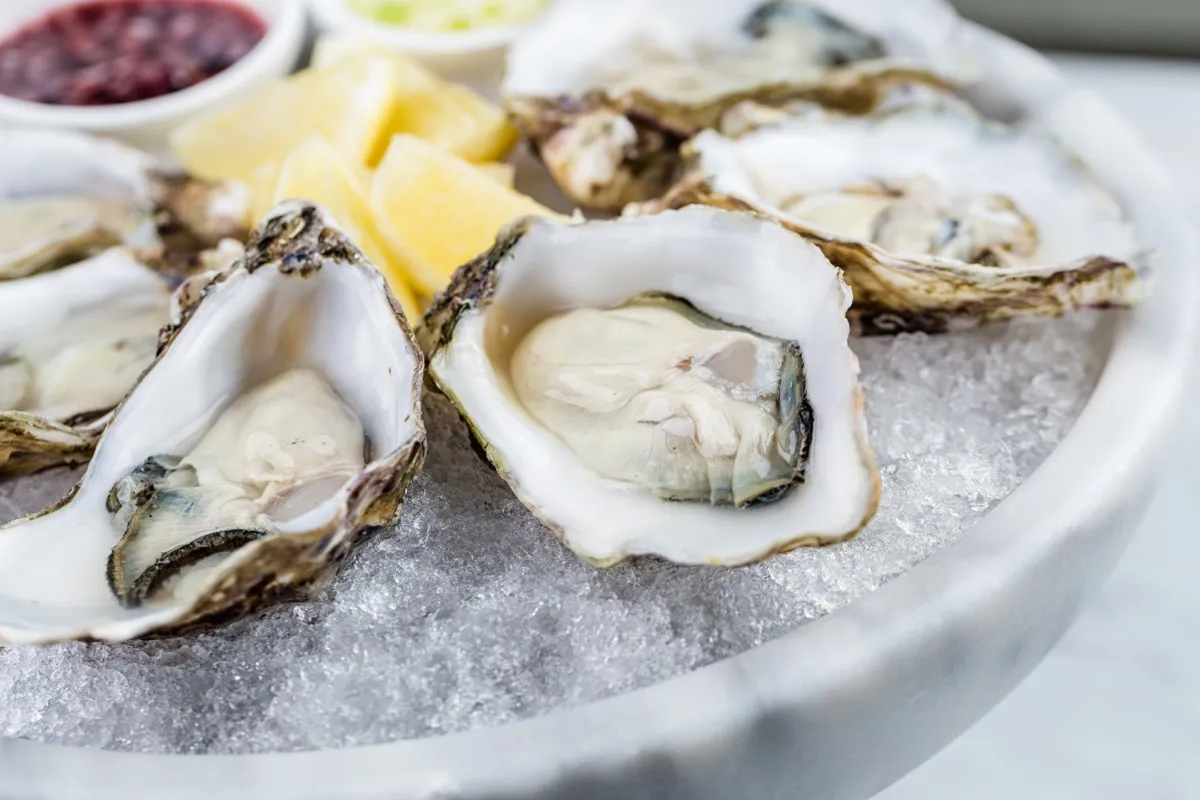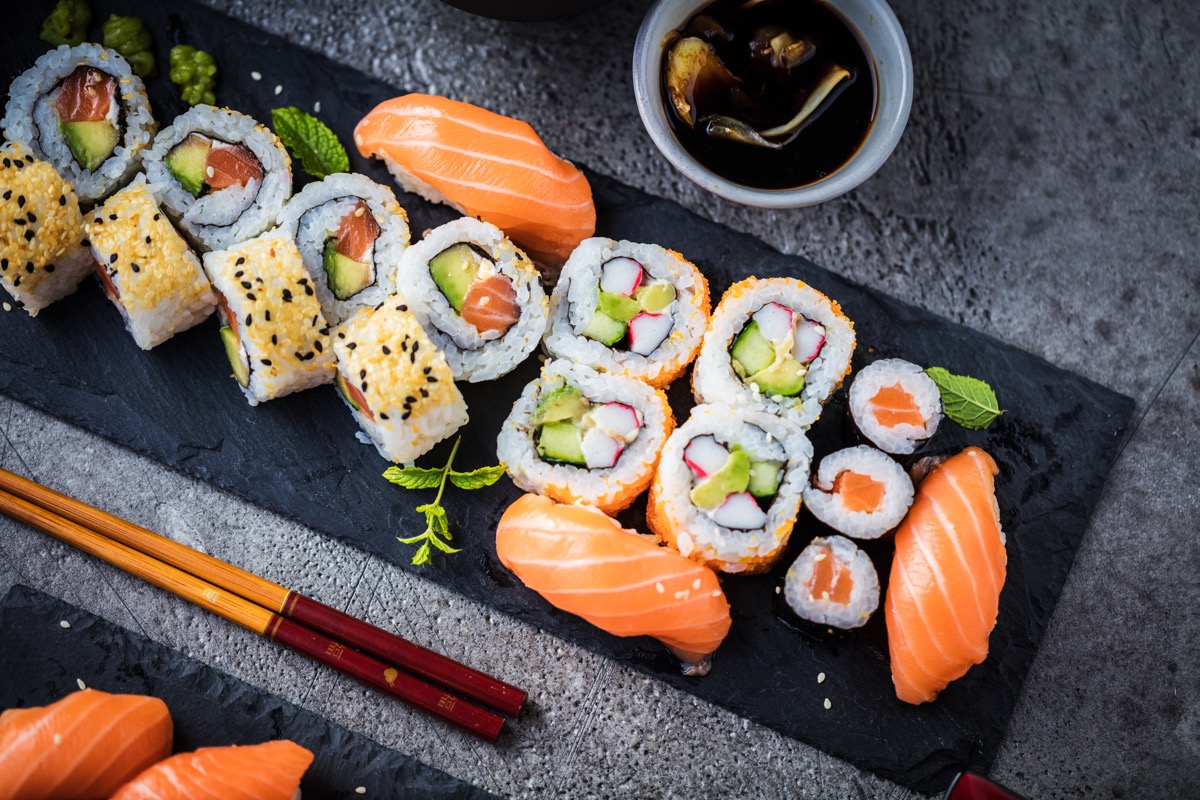Never Order Seafood Unless You've Asked Your Server This, FDA Warns
If you're not asking this question, you could be putting you health at risk.

Whether you love lox or are serious about your sushi, seafood is a healthy addition to many diets. Loaded with omega-3 fatty acids and protein, seafood consumption has been linked to increased longevity, better heart health, and weight loss. However, before you order your next seafood-based meal, there's one pertinent question you should be asking your server to avoid serious illness, according to the U.S. Food & Drug Administration (FDA). Read on to discover what question you should be asking and how to keep yourself safe.
RELATED: If You're Over 65, Never Eat This Kind of Cheese, Says Mayo Clinic.
Always ask if your seafood has been kept on ice before ordering.

If you're ordering raw seafood, like sushi, oysters, ceviche, or tuna tartare, at a restaurant, you should always inquire with your server about how it's been stored prior to serving, the FDA recommends. Specifically, the authority says that anyone ordering raw seafood should ask if the food they're ordering has been frozen, thawed, and kept on ice.
"Some species of fish can contain parasites, and freezing will kill any parasites that may be present," the FDA explains. However, the agency notes that not all pathogens are killed when a piece of fish is frozen, so eating fully cooked seafood is always a safer bet.
The FDA notes that this is also the best practice when selecting whole fresh fish or shrimp in a restaurant or store. "Only buy fish that is refrigerated or displayed on a thick bed of fresh ice (preferably in a case or under some type of cover)," the agency recommends.
For the latest food safety news delivered straight to your inbox, sign up for our daily newsletter!
When your food is served, make sure it's still cold before digging in.

While inquiring about how the raw seafood you're eating has been stored is a step in the right direction, there are additional measures to take to ensure your health and safety.
When your food arrives, the FDA recommends making sure that it's still cold. "If it's gotten warm before being served, it's not safe!" the authority cautions.
Certain people should avoid raw seafood entirely.

No matter how strong your sushi craving may be, certain groups would be wise to steer clear of all raw or undercooked seafood.
The FDA notes that older adults, immunocompromised individuals, children, and pregnant people should avoid raw or undercooked seafood, as members of these groups "are at greater risk for foodborne illness, and are also more likely to have a lengthier illness, undergo hospitalization, or even die." Members of these groups should also avoid refrigerated smoked seafood, like lox or kippered herring, unless it has been used as an ingredient in a dish that's been subsequently cooked, like a casserole.
Certain clues can tip you off to a dish that's no longer safe.

While raw fish that's reached room temperature or become warm is always unsafe, that's not the only sign you shouldn't eat a particular piece of raw or lightly cooked seafood.
The FDA notes that raw seafood should be thrown away immediately if it has a noticeable smell. Additionally, if you're bringing home raw seafood leftovers, it's important that you refrigerate them within two hours and consume them within 24 hours of their preparation to limit the potential for bacterial growth.





















